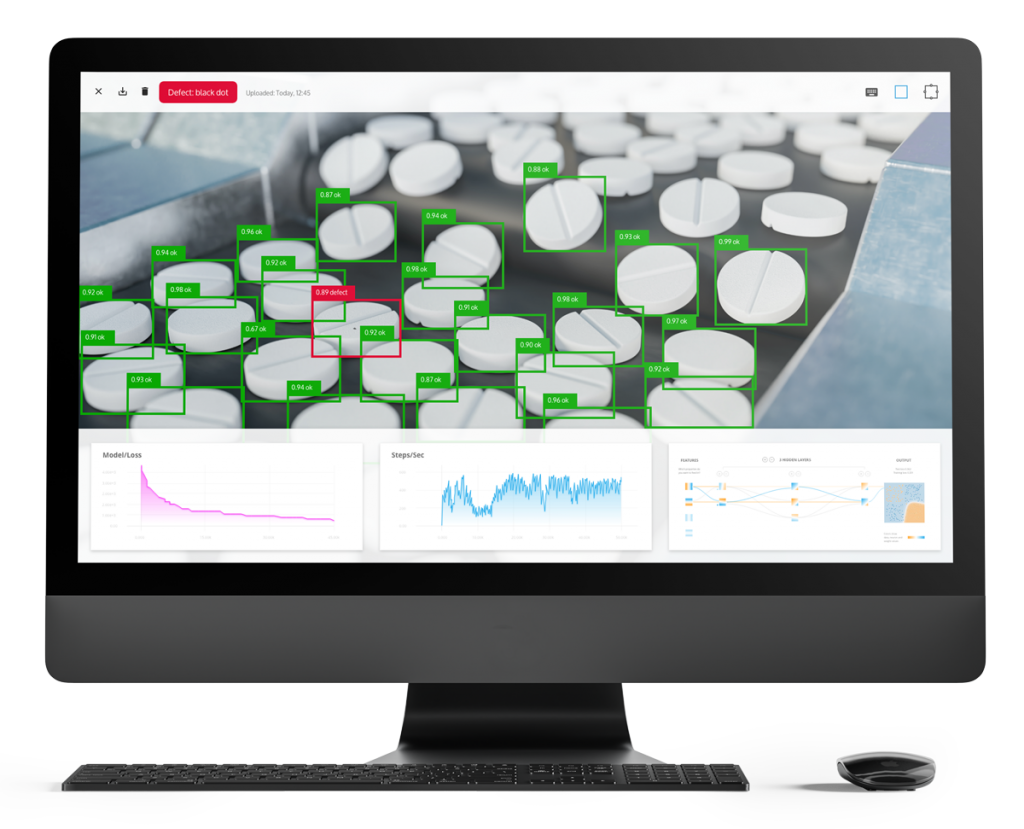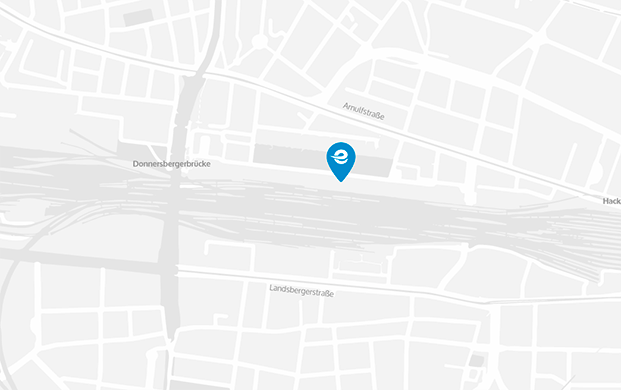In order to simplify the effort of visual defect detection in the production pharmaceutical industry and reduce error rates, elunic has provided AI.SEE™, a camera-based system that uses deep learning algorithms to find defects in tablet and blister products and thus automates the inspection of the produced goods. AI.SEE™ revolutionizes traditional visual inspection in pharmaceutical companies and takes quality inspection in the industry to a new level with the help of AI.
Background
In today's world, precision and quality are top priorities in the pharmaceutical industry! Visual inspection therefore plays a crucial role in pharmaceutical companies to ensure product integrity. The search for efficient and reliable methods of error detection in the manufacture of pharmaceutical products has never been more important than it is today in order to prevent system-related disadvantages such as delayed drug delivery and blister contamination.
AI.SEE™ performs visual inspection with unparalleled precision and reliability. The deep learning algorithms are able to detect even the smallest deviations, which are often difficult for the human eye to perceive, with constant attention. This maximizes the defect detection rate and minimizes the risk of quality problems. Automating the visual inspection of pharmaceutical products also speeds up the inspection process, so that shorter production times can be realized and a faster supply of medicines to the market can be ensured. Pharmaceutical defect detection systems must also meet specific producer requirements and be compatible with pharmaceutical quality standards. AI.SEE™ is designed to meet these specific requirements of pharmaceutical production while ensuring compliance with industry regulations and standards.
Visual inspection of pharmaceutical products using AI is the key to ensuring your product integrity and patient safety. With AI.SEE™, you can rely on a revolutionary technology that allows you to increase efficiency, minimize human error and achieve the highest quality standards.
Goals
- Automated quality inspection and software-supported traceability of production quality.
- Logical classification of errors.
- Replacement of random quality assurance with full quality assurance.
Solution
- Design, construction and implementation of production and audit trail-compliant hardware and software.
- Guarantee of error detection under pharmaceutical-specific production conditions (e.g. difficult recording conditions due to tablet dust).
- OCR text recognition for data exchange with ERP and MES.
- Detection of the smallest shape and color deviations through automatic image evaluation with the latest deep learning technology.

Procedure
Initial meeting to record and evaluate the framework parameters in production.
Outline of possible setups for the pre-selection of hardware components including a rough cost assessment.
Final modeling and realization of camera, lighting and mount.
Use of AI.SEE™ for a web-based PoC to detect incomplete shapes on tablets and extension to detect 23 defect classes on 4 product types.
Connection to cameras and integration into the production process using optimized deep learning hardware AI.SEE™ Edge and the use of high-performance TPUs.
Automatic retraining of AI.SEE™ in the production process based on new image data to continuously improve the recognition rate.
Find out now with just a few questions whether your problem can also be solved by AI.SEE™.
AI.SEE™ uses artificial intelligence to enable manufacturers to carry out non-destructive, reliable and automated inspections of their products.
Thanks to deep learning algorithms, even the smallest defects on heterogeneous or reflective surfaces that are often overlooked by human inspectors can be found with consistently reliable quality, providing powerful insights that help improve quality and operational efficiency.
References
Find out more about the use case.
























































































